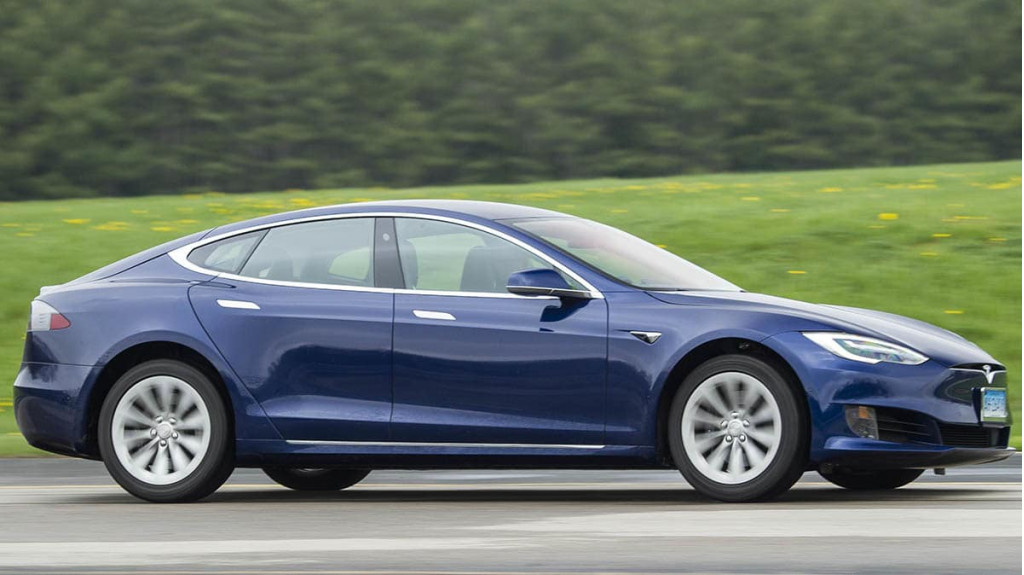Tesla, its owners and fans, and its CEO Elon Musk crow a lot about the capabilities of its Autopilot self-driving system.
In independent comparisons, though, other autonomous driving systems keep coming out ahead. The latest is from Navigant Research, an automotive consulting firm, and the results aren't rosy for Tesla's Autopilot. It rated second from the bottom among a group of 20 companies working to develop self-driving systems.
DON'T MISS: Tesla Full Self-Driving will still require drivers when it arrives later this year
One reason Autopilot didn't fare well here is that Navigant's study rates self-driving programs on things beyond the systems' performance. The study includes 10 criteria: the companies' self-driving visions; their technology itself; its capability, quality, and reliability; whether the companies have any partners and the quality of those partners; sales, marketing, and distribution strategies; marketing and production strategies; the product portfolio; and the companies' staying power.
The companies are ranked within those criteria using a proprietary matrix that Navigant holds close to the vest. "Companies developing suitable business models in conjunction with the core technology remain most likely to succeed in commercializing automated driving," Navigant said in a statement introducing the study.
MUST READ: IIHS: Self-driving systems aren't that, and aren't ready for prime time
Tesla's Full Self Driving Capability is available as an option on all of its cars and includes Navigate on Autopilot, which allows Teslas to negotiate ramps and lane changes on limited-access highways on their own, with only turn-signal confirmation, as long as the driver touches the steering wheel regularly. It also includes the Enhanced Summon feature, starting to roll out now, which will bring the car to the driver through a parking lot or take it to find a parking space. It sells for $5,000 and also requires the $3,000 Autopilot option. (Autopilot consists only of adaptive cruise control and active lane control.)
The top self-driving companies in Navigant's study have very different approaches from Tesla and are mainly working toward developing driverless taxi services: Google's (Alphabet's) Waymo, and GM's Cruise, along with Ford Autonomous Vehicles, which the company is developing without much fanfare.
CHECK OUT: Consumer Reports ranks Tesla Autopilot second among self-driving systems
Along with the other 16 systems in the study, these companies' cars all require human drivers behind the wheel. Waymo, Cruise, and others operate small-scale commercial taxi services in cities around the U.S. including Phoenix, San Francisco, and Pittsburgh.
"As of the end of 2018, all automated driving market players have one thing in common: no company is providing commercial services without a human safety operator onboard the vehicle when carrying passengers. As work has progressed on many fronts in validating automated driving technology, engineers and developers are realizing how many years away they are from ensuring the stability of the technology," Navigant said.

2017 Tesla Model S testing at Consumer Reports
Indeed, earlier versions of Autopilot have been blamed in a number of fatal crashes around the world when their drivers weren't paying attention, and some which resulted in serious injury. In a recent conference call, Musk acknowledged that when the company's Full Self Driving Capability comes online, which he expects to happen later this year, "it won't be reliable at first," and drivers "will still have to pay attention."
READ MORE: Investigators: Autopilot sped up before fatal Tesla Model X crash
Beyond that, the benefits of self-driving systems mostly center around reducing the need for parking and maximizing cars' usage for the money they cost. It's not clear, once Teslas can all drive themselves, why anybody would buy one instead of just hailing a ride wherever they need to go.
Other companies that Navigant examined included Aptiv, Intel-Mobileye (Tesla's former Autopilot partner), Volkswagen, Daimler, Baidu, Toyota, the Renault-Nissan-Mitsubishi alliance, BMW-Fiat Chrysler-Intel, Volvo, Zoox, May Mobility, Hyundai, Uber, Navya (low-speed autonomous shuttle buses), and Voyage—and Apple, the only company that rated below Tesla.












